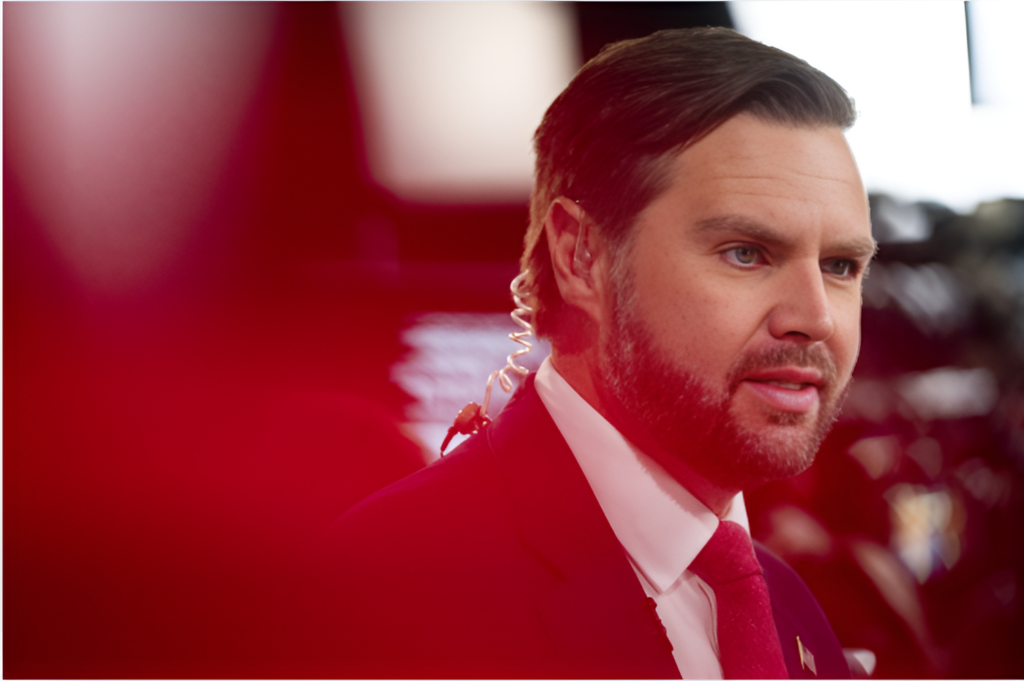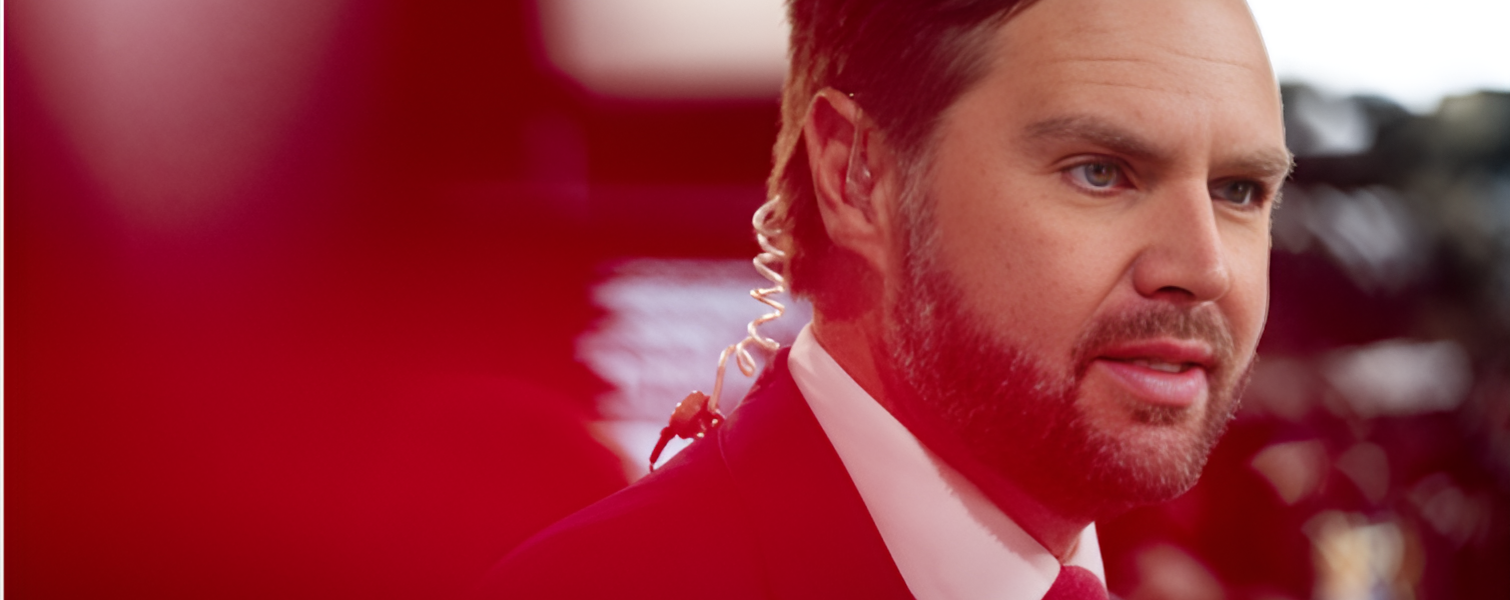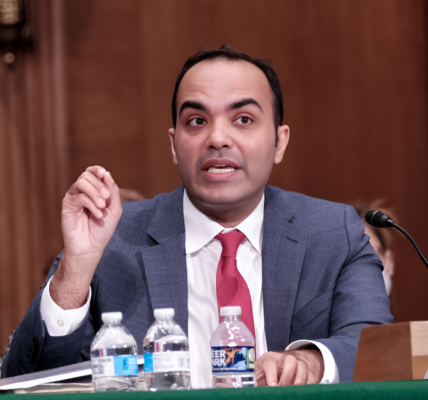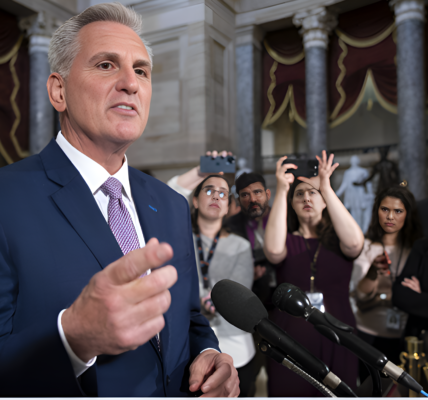
Since launching his vice presidential campaign this summer, JD Vance has been an enigma to many within the conservative elite. His supporters have long awaited the other side of Vance — the side that appeals not only to the MAGA crowd but also to intellectuals within the New Right, those advocating for a nationalist, populist reinvention of the GOP. While Vance’s rallies and social media presence have been full of the combative, firebrand rhetoric that characterizes his populist appeal, many have been asking: Where’s the more cerebral, wonky side of Vance that earned him admiration among policy wonks and intellectual conservatives?
That side made a brief appearance during Tuesday’s vice presidential debate, offering a glimpse of the Vance that energized those who had previously lauded him as the intellectual face of a new, more thoughtful conservatism. Gone was the aggressive MAGA firebrand; in his place was the more measured, nuanced figure whose rhetoric has earned him a following among conservative elites.
“This was the Vance that so many of us have rallied behind,” said Sohrab Ahmari, a conservative journalist and co-editor of Compact Magazine, who praised Vance’s sophisticated approach to policy and his “post-neoliberal theory of bipartisan failure.”
Despite this moment of intellectual clarity, the debate did little to change the overall dynamics of the race. Vice presidential debates rarely do, and snap polling indicated that viewers considered the debate a tie. Vance’s staunch refusal to acknowledge that Trump lost the 2020 election only fueled the Democratic narrative that he is simply a more polished version of Trump’s anti-democratic extremism. Yet for Vance, the debate marked a significant moment in his campaign, providing a much-needed boost to his image after a rocky start and reinforcing his role as the standard-bearer of a new conservative populism.
“Anything can happen, of course, but I think the debate was his coming-out as the future of American conservatism,” said Rod Dreher, a conservative writer and longtime Vance supporter.
Vance’s performance at the debate was both stylistic and substantive. Stylistically, he came across as even-tempered and erudite, a marked contrast to both his campaign persona and his running mate. His embrace of “reform conservatism” — the idea that conservative policies should not only address the needs of the elite but also offer tangible benefits to the broader public — was evident in his attempt to present right-wing economic proposals in a more compassionate light, though the actual content of these proposals was still steeped in traditional conservative thinking.
Substantively, Vance made his strongest case yet for a conservatism that breaks away from the “dead consensus” of past GOP policies on trade, foreign policy, economics, and the culture wars. At the core of his argument was a critique of the “experts” who championed globalization and economic liberalization — policies, he argues, that have led to the decline of American manufacturing and the hollowing out of the middle class. For Vance, the solution to America’s problems lies in replacing the current elite class with a new, more conservative one — though this raises the question: Does this new elite share the same failings as its predecessors?
On issues like abortion, Vance acknowledged that Republicans must work harder to regain the public’s trust, a difficult task given the party’s controversial stance post-Dobbs. Yet Vance stopped short of confronting the reality that his running mate’s policies have been central to the current status quo that undermines the GOP’s credibility on the issue. This reluctance to break fully with Trump, especially on matters that embody the old Republican orthodoxy, highlights a contradiction in Vance’s campaign: while he seeks to position himself as a break from the past, he is not yet willing to fully distance himself from Trump.
The question at the heart of Vance’s career remains: which side of him is truly driving his political future? Is he a savvy tactician using populist rhetoric as a stepping stone to challenge the GOP’s establishment? Or is he a true believer in national conservatism who sees Trump’s influence as a necessary tool to reshape the party for the long term?
At the debate, Vance managed to convince many of his supporters that he’s serious about leading the GOP into a new era of populism. But by the time he took the stage at a rally in Michigan the following day, he was back to his familiar campaign style, throwing insults at rivals and ramping up the partisan rhetoric. His supporters must now wonder: Will the more sophisticated Vance resurface when it matters most, and can he attract a broader coalition to his cause?
For now, it’s too early to tell. But with four years until the next presidential election, Vance has time to refine his pitch and decide just how much of his intellectual side — and how much of his firebrand persona — he’s willing to embrace in his bid to redefine the GOP for the future.





